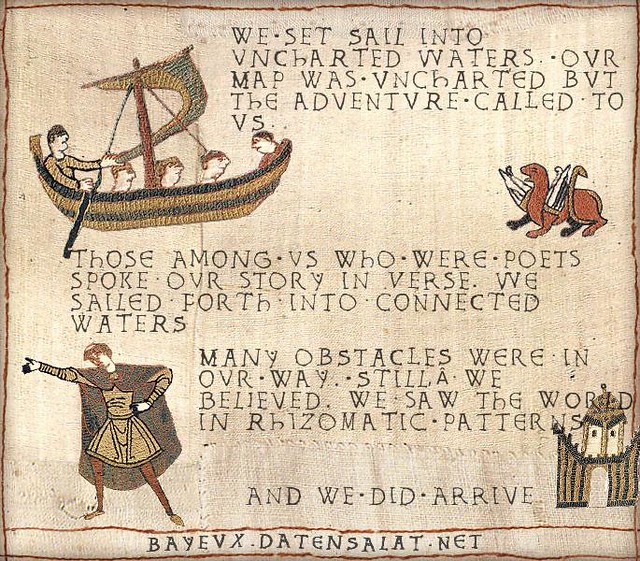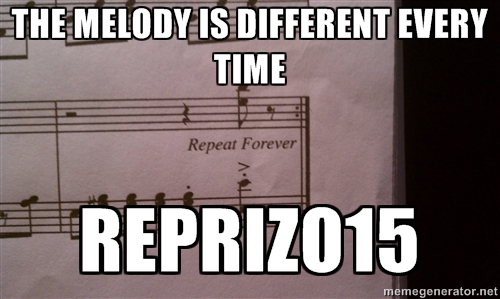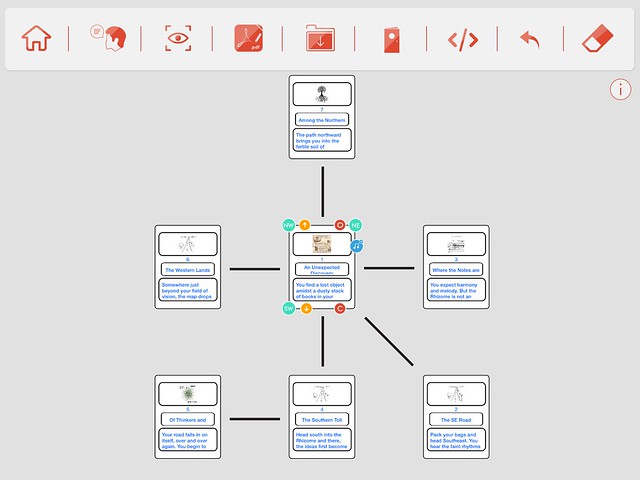
Last year, I was lucky enough to make the leap into Dave Cormier’s Rhizomatic Learning project. I would not call it a MOOC. It was more a gathering of folks exploring this concept of the swirling, interconnected nature of learning experiences. Dave didn’t really provide much in the way of a curriculum. Instead, he challenged our thinking. He acted as a provocateur. His idea was “the community is the curriculum.”
Needless to say, it was intriguing and refreshingly unlike any other gathering or course I have been involved in, and many of the folks in that Rhizo14 have remained solid and strong and constant in my network of educators and thinkers for the past year.
And now Rhizomatic Learning is gearing up for 2015. I’m back in the mix, still wondering what the term “rhizomatic learning” really means and indicates, and how to make sense of something that is fairly slippery on the surface. I’d have a hard time if you and I were having coffee, and you asked, “So, this Rhizo thing, what’s that all about?”
My best bet would be, for me, it’s the confusion before the clarity. It’s an acknowledgement that not every learning experience has a linear path of understanding, and the realization that it may take you longer than you thought to get to the point of clarity. The idea of the rhizome is rooted in the belief that we need to be active in our engagement in the world, and be open to the experiences and expertise and influence of others. That we are not alone in our learning, even though we all must venture on the journey of discovery on our own.
Or at least, that’s my interpretation of it. Yours may be different.
Rhizomatic Learning, for me, in fact, still has many contradictions and many gray areas. I like that because — in some strange meta-way — it means my learning about Rhizomatic Learning is Rhizomatic Learning.
As a teacher, this whole adventure is helping me understand those students who struggle with deep concepts, who need to come in to an idea from odd angles, who may not be where I want them be when they leave me …. and yet, I still have the faith they will get there, eventually.

So, even Dave Cormier checks the oil on the rhizome, I am diving in, and playing around with the concepts. If I have learned one thing from the CLMOOC facilitation team, it is that the energy at the start — and the sense of creativity of a community or network — that defines an experience. Thus, I’ve been making memes, collaborating in music, and welcoming folks in the #rhizo15 Twitter hashtag.

And so it begins ..

Peace (in the twists and the turns),
Kevin





